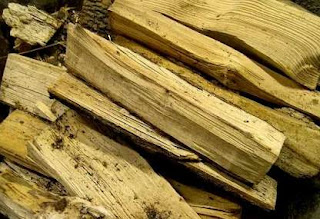y, le dije, puedes agarrar a tus tíos y tías ricos
y a tus abuelos y padres
y todo su inmundo petróleo
y sus siete lagos
y sus pavos salvajes
y sus búfalos
y todo el estado de Texas,
quiero decir, tus cacareos
y tus paseos por la rambla el sábado a la noche,
y tu biblioteca barata
y tus concejales corruptos
y tus artistas afeminados —
puedes agarrar todo eso
y tu periódico semanal
y tus famosos tornados,
y tus mugrientas inundaciones
y todos tus gatos chillones
y tu suscripción a Time,
y metértelos, nena,
metértelos
yo puedo volver a manejar un hacha y un pico (creo)
y puedo sacar
25 dólares por cuatro rounds (quizás)
seguro, tengo 38
pero un poco de tintura puede quitarme
el gris del pelo,
y todavía puedo escribir un poema (a veces),
no olvides ESO, y aunque
no reditúe
es mejor que esperar la muerte y el petróleo,
y matar pavos salvajes,
y esperar que el mundo
empiece.
muy bien, vago, dijo ella
vete.
¿qué? dije yo.
vete. ese fue
tu último berrinche.
estoy cansada de tus malditos berrinches:
siempre actúas como un
personaje de una obra de O’Neill.
pero yo soy diferente, nena,
no puedo
evitarlo.
¡claro! tú eres diferente
¡Dios, qué diferente!
no golpees la puerta
cuando te vayas.
pero, nena, ¡yo amo tu
dinero!
¡ni una sola vez dijiste
que me amabas a mí!
¿qué quieres
un mentiroso o un
amante?
¡tú no eres ni una cosa
ni la otra! ¡vete, vago,
fuera!
¡... pero, nena!
¡vuelve a O’Neill!
fui hacia la puerta,
la cerré suavemente y me marché,
pensando: todo lo que ellos quieren
es un indio de madera
que diga sí y no
y que vigile el fuego y
no arme mucho lío;
pero te estás poniendo
viejo, chico;
la próxima vez esconde
mejor
las cartas.
Charles Bukowski, Andernach, Alemania, 1920 – Los Ángeles, Estados Unidos, 1994
Versión © Gerardo Gambolini
imagen: s/d
The day I kicked Away a Bankroll
and, I said, you can take your rich aunts and uncles
and grandfathers and fathers
and all their lousy oil
and their seven lakes
and their wild turkey
and buffalo
and the whole state of Texas,
meaning, your crow-blasts
and your Saturday night boardwalks,
and your 2-bit library
and your crooked councilmen
and your pansy artists -
you can take all these
and your weekly newspaper
and your famous tornadoes,
and your filthy floods
and all your yowling cats
and your subscription to Time,
and shove them baby
shove them
and grandfathers and fathers
and all their lousy oil
and their seven lakes
and their wild turkey
and buffalo
and the whole state of Texas,
meaning, your crow-blasts
and your Saturday night boardwalks,
and your 2-bit library
and your crooked councilmen
and your pansy artists -
you can take all these
and your weekly newspaper
and your famous tornadoes,
and your filthy floods
and all your yowling cats
and your subscription to Time,
and shove them baby
shove them
I can handle a pick and axe again (I think)
and I can pick up
25 buck for a 4-rounder (maybe);
sure, I'm 38
but a little dye can pinch the gray
out of my hair;
and I can still write a poem (sometimes),
dont forget THAT, and even if
they dont pay off,
it's better than waiting for death and oil,
and shooting wild turkey,
and waiting for the world
to begin.
and I can pick up
25 buck for a 4-rounder (maybe);
sure, I'm 38
but a little dye can pinch the gray
out of my hair;
and I can still write a poem (sometimes),
dont forget THAT, and even if
they dont pay off,
it's better than waiting for death and oil,
and shooting wild turkey,
and waiting for the world
to begin.
all right, bum, she said
get out.
what? I said.
get out. you’ve thrown your
last tantrum.
I’m tired of your damned tantrums:
you’re always acting like a
character in an O’Neill play.
but I’m different, baby,
I can’t help
it.
you’re different, all right!
God, how different!
don’t slam
the door
when you leave.
but, baby, I love your
money!
you never once said
you loved me!
what do you want
a liar or a
lover?
you’re neither! out, bum,
out!
... but baby!
go back to O’Neill!
I went to the door,
softly closed it and walked away,
thinking: all they want
is a wooden Indian
to say yes and no
and stand over the fire and
not raise too much hell;
but you’re getting to be
an old man, kiddo;
next time play it closer
to the
vest.








